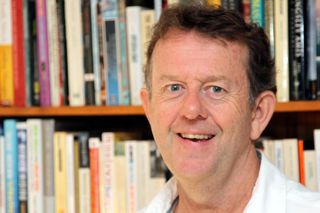Take a look at Syria’s example to remember what SA almost became
We writers need always guard against exaggeration. Terms like “for the first time ever….” and my personal non-favourite “all eyes are on….” cheapen otherwise good work. Even so, it’s hard to describe South Africa’s passage to democracy as anything other than unique.
Indeed, a miracle of our age.
I’m convinced there was Divine Intervention. But that comes from belief born of personal experience.
My secular-minded friends usually ascribe SA’s peaceful transition to a cocktail of Nelson Mandela and the almost infinitely generous spirit of the previously disenfranchised. Grudgingly, they also admit the role played by the most insightful and humble of any modern Afrikaner leader. The remarkable Frederik Willem de Klerk, who somehow got his fearful constituency to take the biggest possible leap of faith. He too, was key.
Two decades later, South Africa’s unlikely escape from its apocalypse is easily forgotten in the hurly-burly of daily life. To keep perspective, it’s healthy to receive a jolt every so often. Something to remind us what might have been. Mine came with the force of a cattle prod at a private dinner in Davos last month.
One always takes home libraries of learnings and abundant memories from a World Economic Forum annual meeting. Davos 2013 gave me one that will stay a long time. It came during a private dinner with political leaders of the troubled trio of Syria, Libya and Pakistan.
Conversations at events like this are strictly “off the record”, a sensible WEF policy to stimulate free flowing, honest conversation. The downside of the no attribution rule is that one wonders whether speakers embellish. As I most certainly did this time, musing whether the politicians were playing to the crowd. It all sounded too bad to be true. Libya is in a mess that will take years to stabilize. Pakistan is on the brink. And poor, poor Syria…..
This time no exaggeration was necessary. Nor provided.
The Syrian story, in particular, resonated with the force of a neighbour’s vuvuzela. It served as a living reminder of what might have been on the southern tip of Africa in the 1990s and beyond. By refusing to compromise, Syria’s warring parties have been systematically and consciously turning their homeland into a wasteland. Succumbing to the all too human temptation of collective hard-headedness because each party, well, knows they are right.
The human tragedy in this nation of 22,5m is sickening. Conservative estimates put the deaths at 165 000 with at least as many political dissidents imprisoned. The economically minded will blanche at stats like Syria’s ballooning of foreign debt from 3% to 60% of GDP. Or a budget deficit that’s surpassed 16% of GDP, higher than South Africa’s at its very worst (we’re around 4,5% now).
Since the conflict began, Syria’s economy has shrunk by a third, wiping out decades of progress. Unless a solution is found by end of 2015, we were told, it is on track to wipe out a staggering 58% of pre-war economic activity. That will drop cultured, highly civilised Syria to behind dirt-poor, failed state Somalia.
Indeed, the Syrian political leader (a recently exiled, highly articulate former professional) spoke of an already collapsed State, predicting Syria is on its way to becoming “Somalia on the Mediterranean”. Even if the war were to stop today, he offered, it’s too late to save the world’s two oldest cities. Historic Damascus has been virtually razed; Aleppo is fast approaching the same situation.
Since returning to Johannesburg, I’ve realized why many young people complain about whining parents. Hardly a dinner party (or business lunch for that matter) passes without the major dish being a pile of uninformed comment and unsubstantiated urban myths.
Surely, it’s more productive to steer the conversation towards South Africa might so easily have become? And while celebrating that miracle, consider what that makes possible? As a nation, we must remain vigilant against the cancers of crime, corruption and mis-governance. But rather than complaining, isn’t it better to get involved? Instead of criticism, trying to see the other side? And once after having a look towards Syria, remembering how tolerance and an open mind can change the future?



